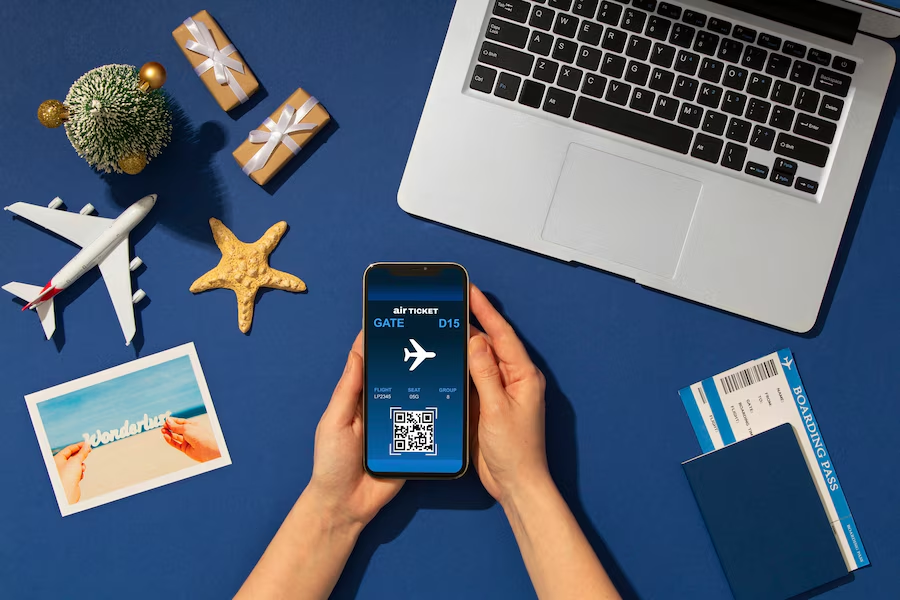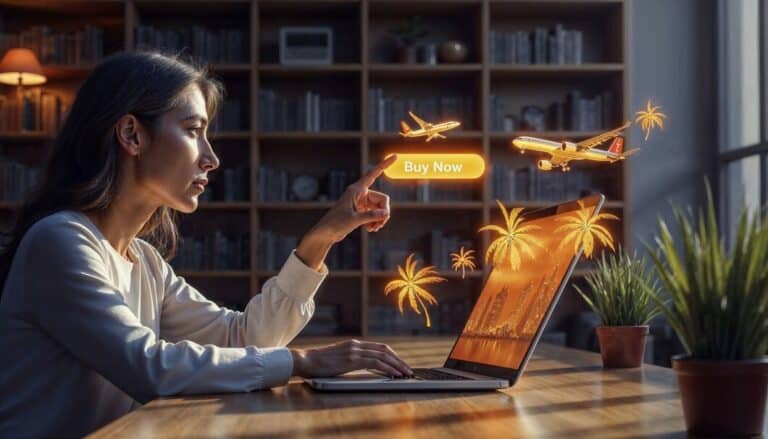As the travel industry evolves, the integration of technology is transforming how we plan, book, and experience our journeys. With the advent of automated booking systems and personalized travel experiences, the future of travel promises to be more efficient, tailored, and enjoyable than ever before. This article explores the key trends driving these changes and how they are reshaping the travel landscape.
The Rise of Automation in Travel

Automation is revolutionizing the travel industry by streamlining processes that were once time-consuming and cumbersome. From booking flights to managing itineraries, automation technologies are enhancing efficiency and improving customer satisfaction.
1. AI-Powered Booking Systems
Artificial intelligence (AI) is at the forefront of this transformation. Travel companies are increasingly adopting AI-driven platforms that allow for seamless booking experiences. These systems can analyze vast amounts of data to provide personalized recommendations based on travelers’ preferences, past behaviors, and real-time market conditions. For instance, AI chatbots can assist travelers in finding suitable flights or accommodations, answering queries instantly and reducing wait times .
2. Smart Travel Assistants
The emergence of smart travel assistants is another significant development. These AI-driven tools can manage entire travel itineraries, including flight changes, hotel bookings, and activity suggestions. By learning from user interactions, they can offer increasingly personalized experiences. For example, a smart assistant might suggest a local restaurant based on dietary preferences or recommend activities aligned with interests expressed during previous trips .
3. Enhanced User Interfaces
User interfaces are becoming more intuitive thanks to advancements in technology. Websites and apps now feature voice search capabilities and conversational interfaces that make it easier for users to navigate booking processes. This shift not only enhances accessibility but also caters to a broader audience, including those who may be less tech-savvy .
Personalized Travel Experiences
While automation simplifies the logistics of travel, personalization enriches the overall experience. Travelers today seek unique adventures that resonate with their individual preferences and values.
1. Tailored Recommendations
Travel companies are leveraging big data analytics to deliver tailored recommendations to customers. By analyzing browsing history and previous bookings, companies can suggest destinations, activities, and accommodations that align with a traveler’s interests. This level of personalization enhances customer satisfaction and increases the likelihood of repeat bookings .
2. Customized Itineraries
The ability to create customized itineraries is becoming a standard offering among travel providers. Using AI tools, travelers can design their trips based on specific interests—be it culinary experiences, adventure sports, or cultural immersion—ensuring that every aspect of their journey is aligned with their desires .
3. Real-Time Adjustments
With automated systems in place, travelers can enjoy real-time adjustments to their plans. If a flight is delayed or an activity is canceled, smart systems can quickly suggest alternative arrangements without requiring extensive input from the traveler.
Conclusion
The future of travel is being shaped by the convergence of automation and personalization. As technology continues to advance, travelers can expect more streamlined booking processes alongside highly tailored experiences that cater to their unique preferences. This evolution not only enhances convenience but also fosters deeper connections between travelers and their destinations. As we embrace these changes, the journey ahead promises to be as exciting as the destinations themselves.
FAQs
1. What is automated booking in travel?
Automated booking refers to using technology—such as AI systems—to streamline the process of reserving flights, accommodations, and activities without extensive manual input from travelers.
2. How does AI enhance travel planning?
AI enhances travel planning by analyzing user data to provide personalized recommendations for flights, hotels, and activities based on individual preferences and past behaviors.
3. What are smart travel assistants?
Smart travel assistants are AI-driven tools that help manage travel itineraries by providing real-time updates on bookings, suggesting activities, and answering traveler inquiries.
4. How does personalization improve travel experiences?
Personalization improves travel experiences by tailoring recommendations and itineraries to match individual interests and preferences, ensuring a more meaningful journey.
5. Can I customize my itinerary using technology?
Yes! Many travel platforms now offer tools that allow you to create customized itineraries based on your specific interests and needs.
6. What role does big data play in personalized travel?
Big data allows travel companies to analyze vast amounts of information about customer preferences and behaviors to deliver tailored recommendations effectively.
7. Are there any downsides to automated booking systems?
Potential downsides include over-reliance on technology leading to less human interaction or potential errors in automated systems that may require manual correction.
8. How do I ensure my personal information is secure when using these technologies?
Always use reputable platforms with strong privacy policies, enable two-factor authentication where available, and avoid sharing sensitive information unnecessarily.
9. Will automation replace human jobs in the travel industry?
While automation may change job roles within the industry by taking over repetitive tasks, it also creates opportunities for new positions focused on customer service and experience management.
10. How can I stay updated on trends in automated bookings and personalized travel?
Follow industry news sources, subscribe to travel blogs or newsletters, and engage with online communities focused on innovations in travel technology.

